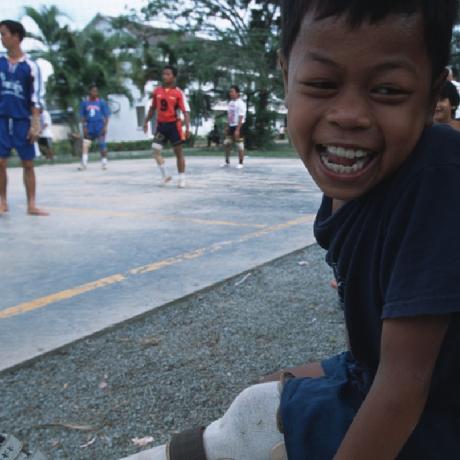
The project launch will take place in Phnom Penh on 4 October 2016, followed by a series of workshop sessions on tools for evaluating social inclusion in public policy.
This project focuses on strengthening national capacities to assess and revise social policies to increase inclusiveness and ensure the equal enjoyment of human rights by all, including the disadvantaged and vulnerable segments of population.
The rationale of the project is to bring closer social science research and policy making, to stimulate public-driven policy innovations, and to support evidence‐based and inclusive policy design in the select countries in South-east Asia. The project is developed for the direct benefit of policy communities working on inclusive policy analysis and agenda setting, including government, social science communities (e.g. academics) and advocacy and rights-holder groups.
National components will be supported in three countries: Cambodia, Malaysia and Timor Leste, in addition to the global work on sharing of good practice. Each country will select a theme as a focus area for the capacity building and policy support activities. The techniques and tools used are adaptable and can be used across most policy areas, hence although the pilot exercise will focus on one area, wider participation across groups with an interest in social inclusion will enable the development of skills that can be applied in policy processes relevant to their areas of interest. The Cambodian pilot focuses on disability.
Striving for a world that is just, equitable and inclusive has long been a need and a commitment of the international community. From the 1995 World Summit for Social Development in Copenhagen, where social inclusion was affirmed to be a part of key social development goals, to current international deliberations, which call for inclusive social development and equity to be placed at the heart of the post‐2015 development framework, this concern has only strengthened, gradually taking center stage of debates at all levels. The report to the UN Secretary‐General recommending possible post‐2015 goals, calls for inclusive social development to become one of four key dimensions of the new agenda.
The design of policy responses that meet such expectations requires a better understanding of what makes policies inclusive and how well current policies put this into practice. Improving the way data is developed, collected, analysed, stored, updated and used for effective policy making will enable more effective contribution to the policy design and formulation, and enhanced promotion of implementation that effectively bridges research-policy‐practice gaps.
